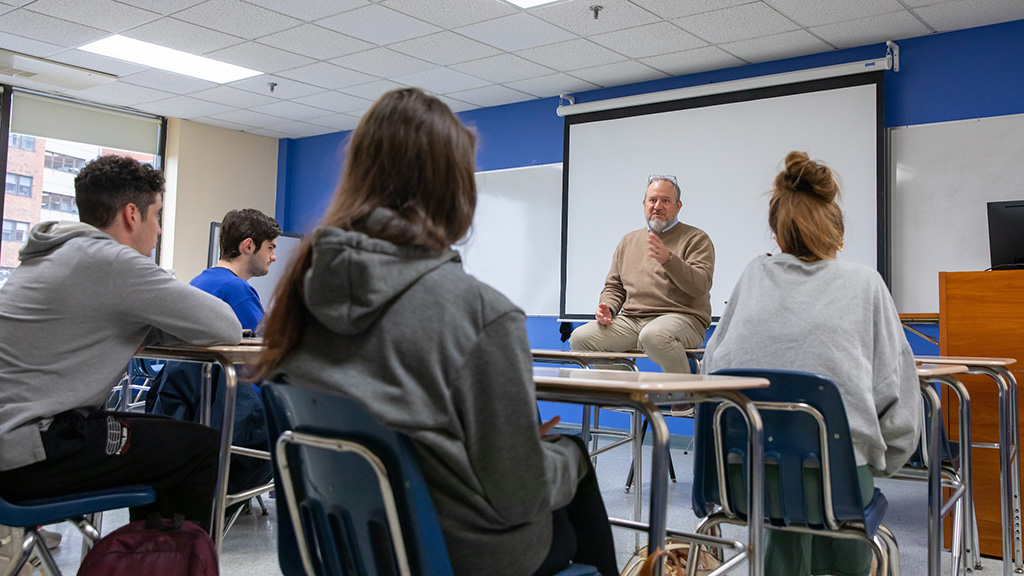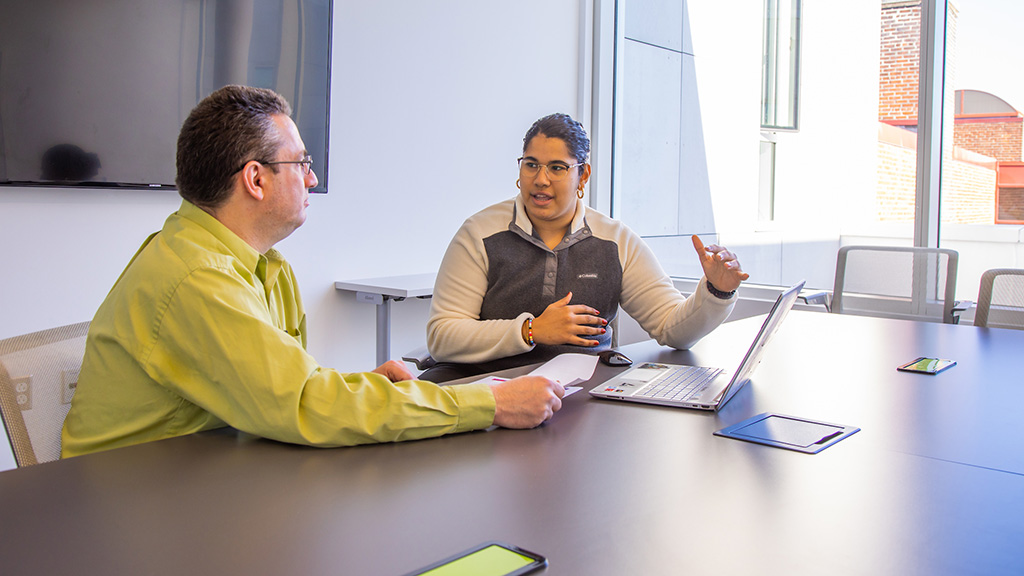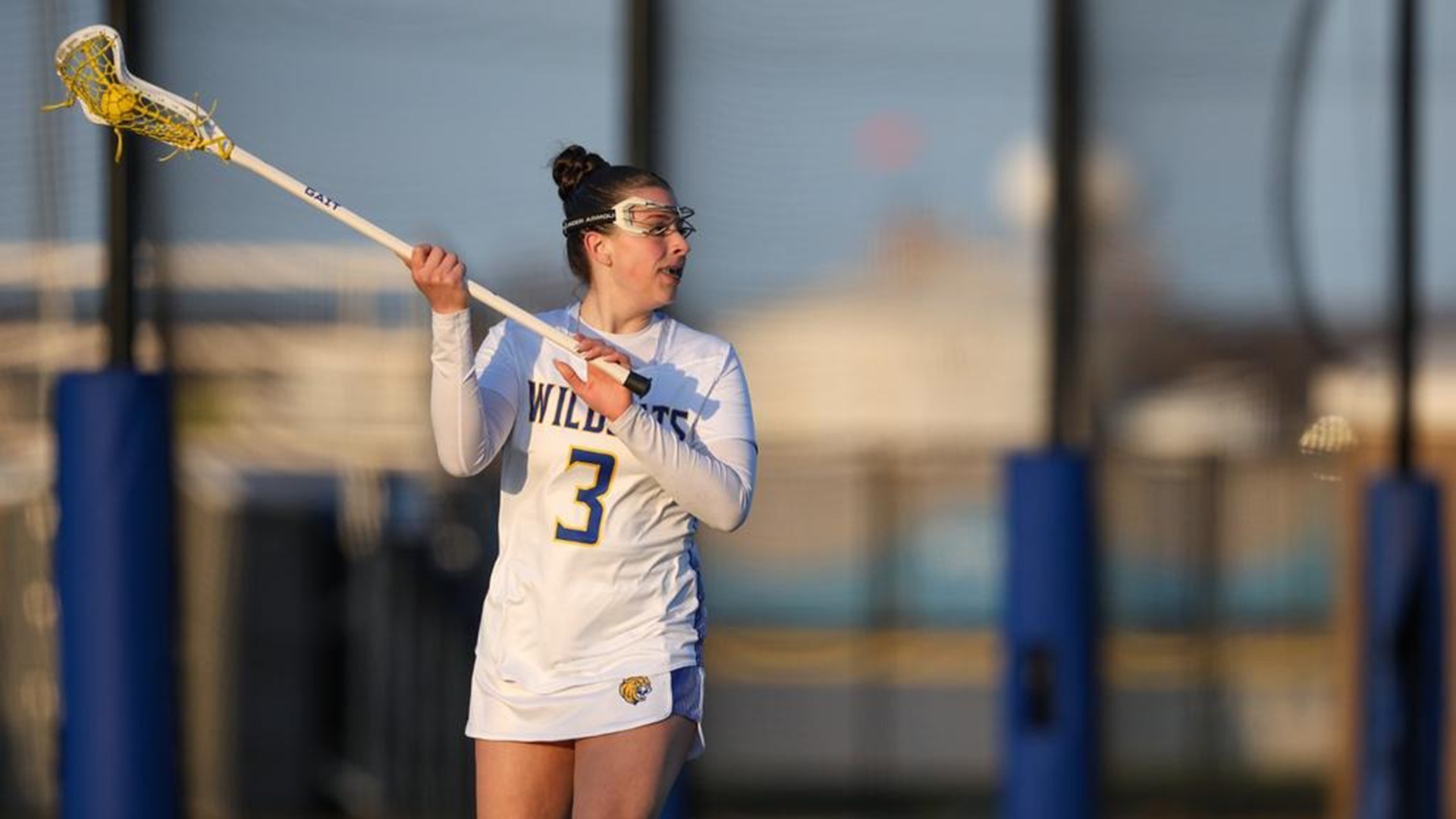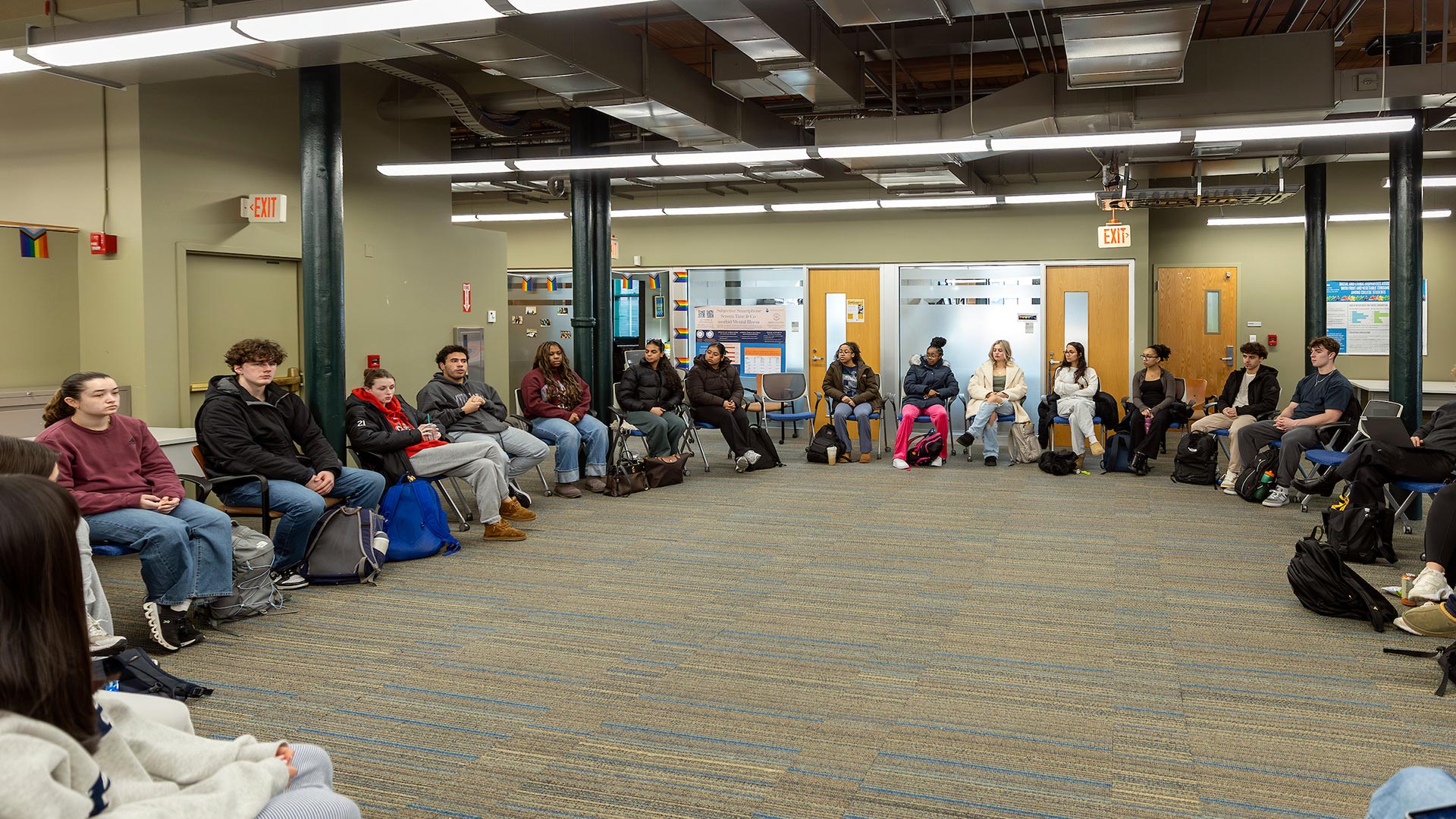How Accessibility Services Can Help You Succeed at JWU
Author Makena Warfield '24 is a Media & Communications Studies major and works as a student assistant at JWU, contributing to JWU News.
For as long as I can remember, I have always been a forgetful person, especially when I was a kid. “You couldn’t hold a memory. After holding you back in kindergarten for the second time, I knew something was off," my mom says. "The teachers at your elementary school kept insisting that they would rather test for a learning disability when you were already failing later in school."
I also moved a lot as a kid, and a lot of the services varied from school to school. My mom took the initiative to volunteer at my school and get to know the staff. A lot of the difficulty was that the majority of parents didn’t understand the laws and implementations of special education services. My mom acted by learning the laws and implementations so she could hold the school accountable if they weren’t doing their job to help me succeed.

How does JWU help students with disabilities?
At JWU Providence and JWU Charlotte, there are dedicated Accessibility Services departments. They are a great resource that offers and promotes equal access for all students with disabilities and/or chronic health conditions. This department provides educational resources to help students achieve great success throughout their time in college, as well as specialized advising appointments for students who need it. The advisors help students advocate for equal access and coordinate their accommodations. However, students must self-identify their disability and seek out their own accommodations.
Accessibility Services work across all departments in the school. “We help our students successfully navigate college with a disability while keeping the university compliant with the ADA,” says Hinda Levin–Kreiger, an accessibility services advisor on the Providence Campus. “We offer a wide range of assistance from classroom accommodations to mobility assistance.”
Levin–Kreiger has been working at JWU for 28 years. Helping college students has always been something she was deeply passionate about. Her passion started when she helped diagnose her older brother when he was going to college. “My brother struggled growing up. I noticed something was off about him, so I went to my parents,” says Levin–Kreiger. Her brother was her motivation for her to work with college students. Back then, since it was not well known, she saw a need to help students at that level. She wanted college students to have what her brother never had available to him.
At JWU Charlotte, Megan Wagner does the same. “A big part of my role is educating students on their rights through the Americans with Disabilities Act so students can understand what their rights are, what accommodations they are entitled to, and how they can use this knowledge after they graduate in the workforce as well,” says Wagner, who is the associate director of Accessibility Services on the Charlotte Campus.
She started working for the disability community in 2018 at a summer camp for adults and children in her hometown. After graduating college in 2020, she took a job in the North Carolina Division Services for the Blind, working with people who had visual impairments. “This experience opened my eyes to the barriers that the disability community faces every day and made me want to work to remove those barriers,” says Wagner. She then joined JWU in August of 2022 to help students with disabilities find success in college.
Having people like Hinda Levin–Kreiger and Megan Wagner, who are so passionate about helping students with different needs, is something that really sets JWU apart.

How can you get accommodation at JWU?
If a student wishes to acquire accommodation, they are required to provide certified documentation from a certified professional. Rest assured the documentation remains confidential with the Accessibility Center. Some examples of documentation that you can provide to the Accessibility Center are medical records (most recent visit, diagnosis, severity, functional limitation, suggested reasonable accommodations), most recent psychoeducational testing, and your most recent school records (such as an IEP, 504 Plan, or a Summary of Performance).
How has JWU helped me succeed?
At Johnson & Wales, they have a true accessibility center where they have dedicated advisors to help you if you're having difficulty with a class. I transferred from a very large two-year community college, where the accessibility center was incredibly understaffed and hands-off. JWU gave me a better sense of inclusion when it came to my learning disability. Having these resources has helped me so much in college and has helped me succeed as a student and as an individual. I would encourage any student looking at colleges to consider JWU, especially if you have a learning disability. Having any kind of disability should never be an obstacle to getting an education, and JWU has the resources to make sure every student can succeed.



